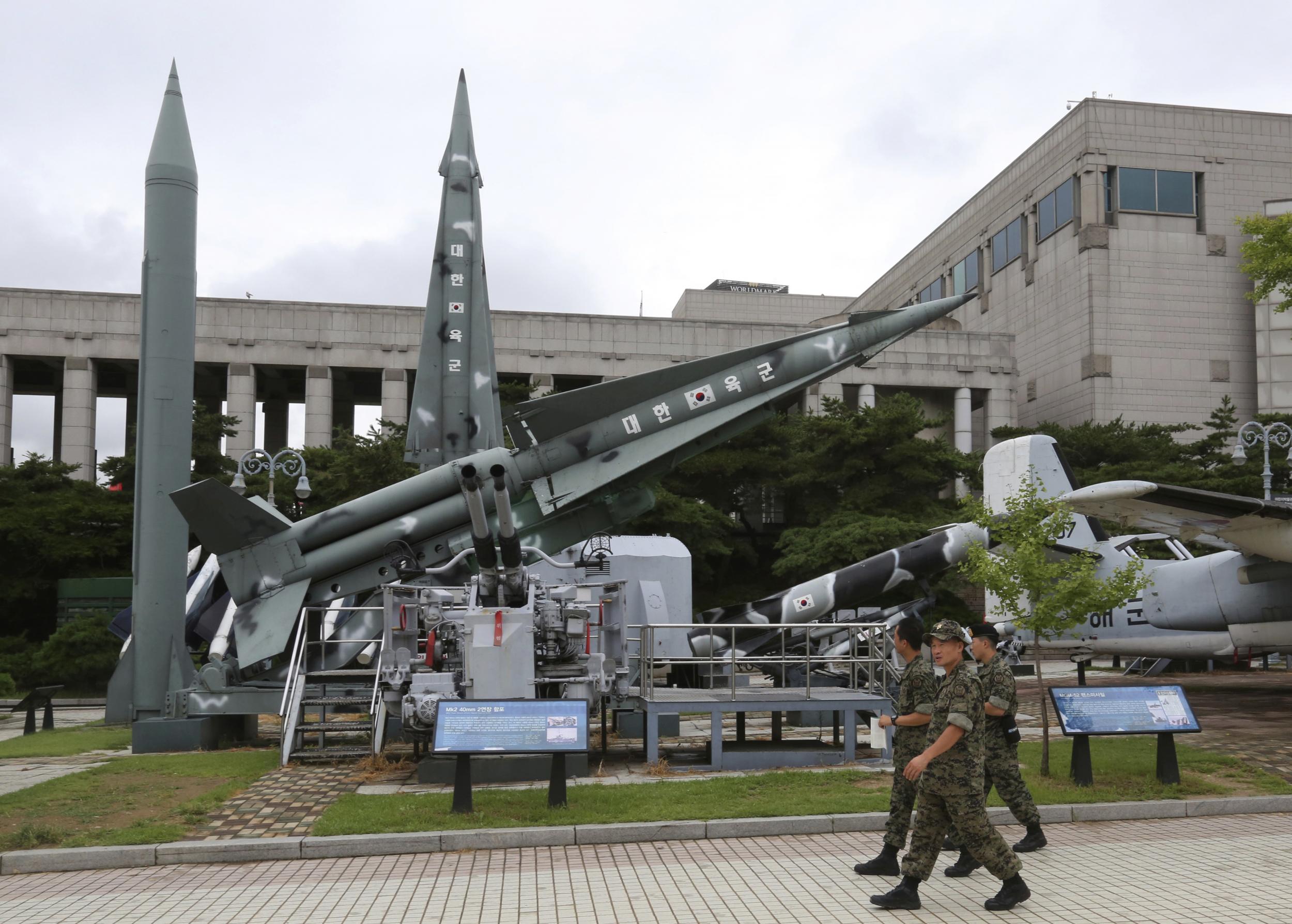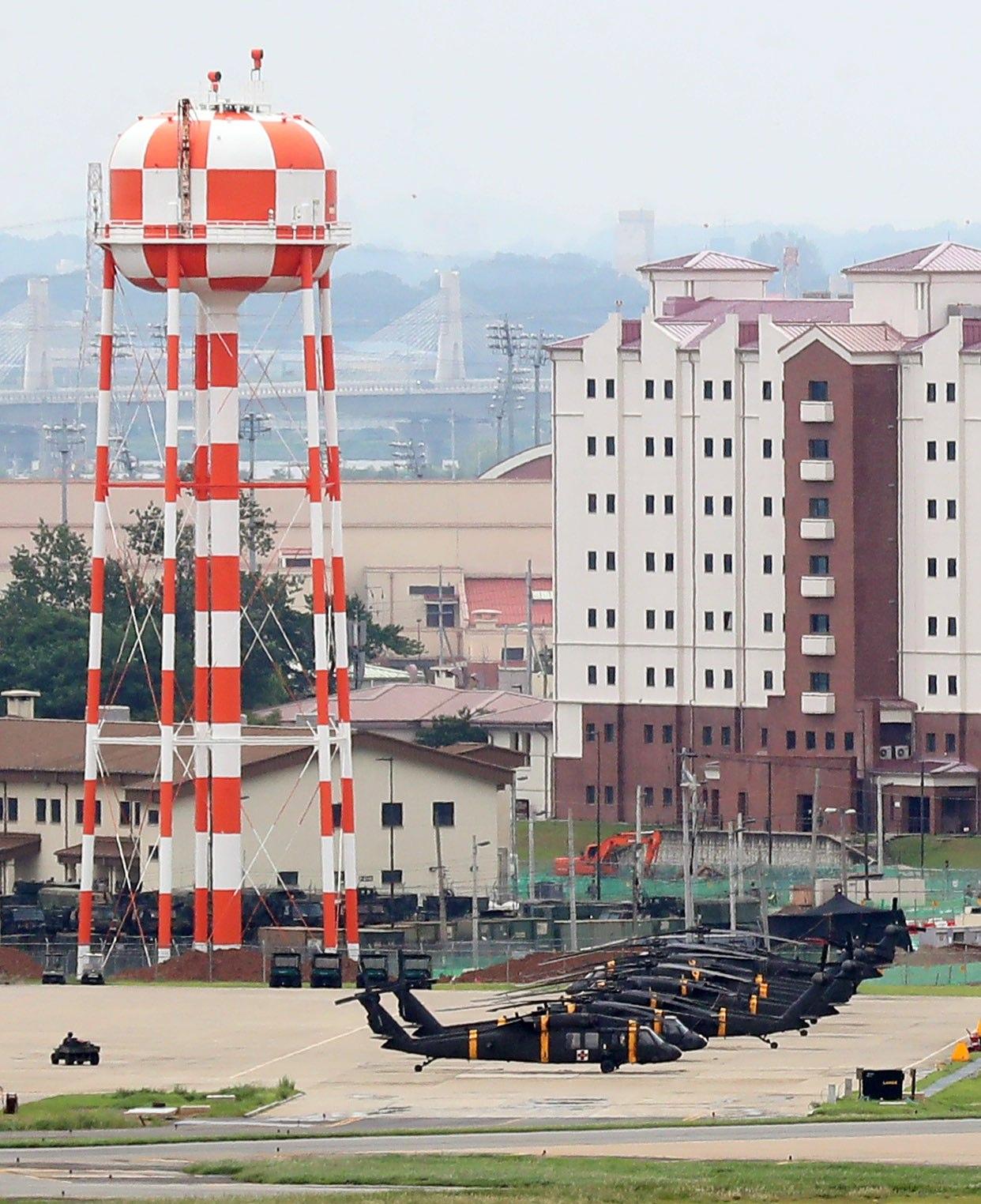North Korea says US causing 'uncontrollable phase of a nuclear war' with military drills
Pyongyang says military exercises with South could trigger a 'merciless strike' that will see America face its 'final ruin'

North Korea has threatened to unleash a "merciless strike" on American territory ahead of joint US-South Korea military drills.
Pyongyang warned the exercises, due to begin on Monday, were "reckless behaviour driving the situation into the uncontrollable phase of a nuclear war".
Thousands of troops will take part in 10 days of military simulations, designed to prepare American and South Korean forces for conflict with North Korea, amid heightened tensions in the peninsula.
Washington describes the drills as "defensive in nature" but Pyongyang has denounced them as a dress rehearsal for war.
"The Trump group's declaration of the reckless nuclear war exercises against the DPRK [Democratic People's Republic of Korea] ... is a reckless behaviour driving the situation into the uncontrollable phase of a nuclear war," said an editorial in official government newspaper Rodong Sinmun.
It declared North Korea's army could target the US mainland, Hawaii or the Pacific territory of Guam at any time, claiming America would be unable to "dodge the merciless strike".
"The US should pay heed to the statement of the DPRK government that we would not rule out the use of any final means," warned another article.
It added: "Reckless and wild acts of the US can accelerate its final ruin."

Pyongyang says it has drawn up plans to fire four missiles towards Guam but North Korean leader Kim Jong-un said last week he had delayed a decision on carrying out the strike.
Donald Trump had said the US military is "locked and loaded" should North Korea "act unwisely", having previously warned Pyongyang would face "fire and fury" if it continued to threaten America.
The escalating war of words, coupled with North Korea's rapid progress in developing nuclear weapons and missiles capable of reaching the US mainland, has fuelled a surge in tension.
The situation has added to pressure on the US and South Korea to stop the military drills. China, North Korea's main ally and trading partner, called for the suspension of the annual exercises in exchange for Pyongyang halting its nuclear programme.
But the US has refused to back down.
"My advice to our leadership is that we not dial back our exercises," said Joseph Dunford, chairman of the US Joint Chiefs of Staff.
"The exercises are very important to maintaining the ability of the alliance to defend itself".
The US military describes the software behind the drills as "state-of-the-art wargaming computer simulations". There will be no field training during the exercise.
As part of the exercises, imagery from military satellites orbiting above the Korean peninsula is at times used to peer deep into North Korea, said a former South Korean government official who declined to be identified.
The US has about 28,000 troops in South Korea. Many of them will be joining thousands of South Korean forces in the exercises.
Other South Korean allies are also joining this year with with troops from Australia, the UK, Canada, Colombia, Denmark, the Netherlands andNew Zealand taking part.
Known as Ulchi Freedom Guardian, the joint drills have their roots in a 1968 raid on South Korea's Blue House presidential complex, when a North Korean army unit secretly entered South Korea and unsuccessfully attempted to assassinate the then president, Park Chung-hee.
The US had been conducting regular "command and control" drills in the years following the 1950-53 Korean War, but merged exercises with the South Korean military following the failed raid, in which all but two of the North Korean commandos were killed.
Join our commenting forum
Join thought-provoking conversations, follow other Independent readers and see their replies
Comments